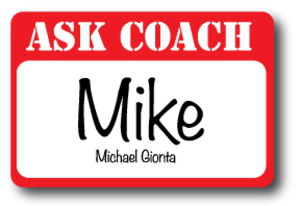Geraldine McDonald bought an apartment in a building with an elaborate security system. Four months later, she was dead - murdered by the building maintenance man who confessed to the crime. Her family sued the real estate management company for negligent hiring.
The maintenance man was familiar to Ms. McDonald. He wore a uniform provided by the company. She knew him and willingly opened the door of her apartment to him. Although the company had requested a criminal records check, the man's conviction for a violent crime and the seven years he served in the state prison were not on the report because of a clerical error. Had the company completed a basic chronological check of his job history, however, the seven-year gap in his employment would have been an obvious red flag.
Jesse L. Burns claimed an MBA from Stetson University and a doctorate from the University of South Florida; however, there was no record of Burns having earned an MBA (only a BS in 1973). The University of South Florida stated that Mr. Burns had enrolled briefly in 1978 but had never completed any course work. When Burns' lack of credentials became public, he was forced to resign as President of Edward Waters College.
The reference checking that the college's Board of Trustees should have done in this case is very basic. Two phone calls by a clerical employee would have saved the college thousands of dollars. This is why it is so important to secure certified transcripts from colleges claimed by selectees for virtually any position.
Most applicants have not committed crimes that would result in lawsuits. Most do not engage in substance abuse. Most do not distort their backgrounds so that large numbers of unqualified people are hired - although increasing numbers of resumes do contain false information about unearned degrees, job titles, responsibilities, or salaries. Whether an employer is hiring a minimum wage employee or a CEO, a reference check is a crucial aspect of the hiring process.
There are two sides to reference checking: getting and giving references. Many employers have a stated policy: the only employee information they share is name, job title, and dates of employment. Such policies evolved over the past several decades as an easy way to avoid law suits for defamation that could result if someone provided a negative reference. They are an over correction which allows "passing the trash" to continue from one employer to the next.
These policies do not make good management sense. Since companies that do not give reference information will not get information in return, withholding information about the work habits of employees prevents prospective employers from making informed hiring decisions. In actual practice, employers give and receive references all the time, simply because this information is necessary in order to employ a quality workforce. The best course of action is to check references, to provide references, and to do it right.
Thirty five states have enacted laws that shield employers from civil liability when giving good-faith references. These laws were passed to encourage employers to talk candidly, especially about issues that could create liability for the new employer.
A survey conducted by the Society for Human Resources Management (SHRM) found that the higher the rank of the person being hired, the more likely the employer is to do a reference check. Eighty-five percent of employers always checked references for executives, administrative, or professional employees; whereas, only 35 percent checked references for seasonal employees. Seventy-two percent speak to former employers or supervisors; 61 percent verify schools attended and degrees earned; and 42 percent check driving records.
Survey respondents indicated that they rarely get adequate information on violent or bizarre behavior. They do, however, receive adequate information on the reason the applicant left the previous employer 47 percent of the time, on work habits (absence, tardiness, etc.) 41 percent of the time, on personality traits 24 percent of the time, and on human relations skills 37 percent of the time.
CREDENTIALS & DOCUMENT VERIFICATION
An application process that has a solid reference checking component
works like this:
- Every applicant completes a standard application form. This provides consistency and uniformity in the information collected.
- Verify education claims the final 3 -5 applicants make. Send Transcript Request Forms to the applicable institutions. Most registrars also will verify degrees by telephone. Keep a record of the results of these telephone calls.
- Confirm the job histories of all the finalists based on calls to their former employers. Request dates of employment and note any attendance problems or additional information available through the former employers' Human Resources Offices.
- Request copies of DD - 214 forms for applicants who have served in the military to show that they were honorably discharged.
- Request police records in all the states where the applicants have been educated or employed if the position for which the applicant is being considered has access to the company's security and financial systems.
- Request a Consumer Investigation for financial and security positions.
- For positions with access to company vehicles or that involve travel on company business, check with the state department of motor vehicles to ensure that the applicant has a valid drivers license.
- Ask the applicant to explain time gaps in work or education history and note the applicant's response to these questions about such gaps.
Most applicants have acceptable explanations for any gaps in their job histories. One applicant had been injured in an automobile accident and had spent six months in physical therapy and rehabilitation. Another had remained at home with her children during their pre-school years. One person had sailed around the world for a year. Another had left military service after only a few months because his father had died and he was needed at home to handle the closing of a family business. Many times
the gap in employment actually contributes to the value of the employee.
Consider contracting out these responsibilities. Hiring an outside firm saves time and trouble. Professional reference checkers can uncover a great deal of valuable information, and this is a task that can be comfortably contracted out. A caution: do not delegate this to a low level employee untrained
specifically in reference checking. Such a person will not learn anything useful
FINAL REFERENCE CHECK
The objective of the Final Reference Check is to get information on work habits, skills, and interactions with others of the person selected for the job. This is a time-consuming task that should be performed by the hiring manager. No one else has a bigger stake in hiring the best person for the job and no one else has better contacts. It is very persuasive to say "I'm looking for someone for our sales staff. That
person will report to me, so I'm particularly concerned about hiring the right person. I'm hoping that you can help me."
The final reference check includes:
- Primary references - key individuals identified during the interview process.
- Secondary references - individuals suggested by the primary references as well as supervisors, subordinates, and peers of the applicant.
- Your contacts - counterparts in other companies and contacts you have from professional organizations.
Note the content of each person's statements. These notes are business records that can support an employer's defense that a reasonable investigation was completed before hiring.
Unless this task is contracted out to an external company, the hiring manager should review the process of reference checking, decide who will be called as references based on individuals identified during the interview process, and prepare a list of job-related questions. For a management job, for example, include general questions related to the quality of the applicant's interface with upper level management, peers, and subordinates, whether or not the applicant anticipates needs in advance and acts appropriately upon them, whether or not the applicant can work independently. Whether or not the applicant can manage a one-on-one reporting relationship or a multiple-reporting relationship, whether or not the applicant can handle interruptions, breaks in routine, and last minute changes,
what the individual considers the major accomplishment of the applicant during his or her employment with the employer, and what the individual considers areas of weakness in the applicant's
performance and work habits.
CONCLUSION
Nothing predicts a person's future job performance more accurately than their previous work habits. Background checks that include a thorough investigation of employment references will enhance the "fit" between employees and the employer's culture. Thorough background checks are not only preventive law. They are a good management practice. Poor hiring decisions are costly. They tarnish the employer's image, compound the administrative workload, require retraining, and lower morale. Effective hiring means assessing all aspects of the job, carefully considering the applicants, and using available information to enhance the hiring decision. With negligent hiring torts being brought in nearly all jurisdictions, pre-hiring practices such as thorough reference checking becomes a key part of any employer's preventive law program.
To stay within the law, be sure that reference information is:
1 given in good faith,
2 factual, accurate, and job-related,
3 supported by personal experience or by written documentation, and
4 not motivated by personnel animosity.
TIPS FROM AN EXPERT
Inform all applicants that you check references. You can do this with a sign posted in an area where applicants will see it or with a note attached to mailed applications. Giving applicants this information will result in some applicants failing to complete the application process for obvious reasons.
Make verification the applicant's responsibility. During the interview, establish with the applicant who will be contacted for references. Ask the applicant to contact these references and ask them to speak freely when you or an outside firm follows up. In other words, make getting the references the applicant's responsibility.
A PLAINTIFF IN A NEGLIGENT HIRING CASE MUST PROVE THAT:
The employee who caused the injury was unfit for hiring or retention.
The employer's hiring or retention of the unfit employee was the proximate cause of the plaintiff's injuries. The employer knew or should have known of the employee's unfitness.





